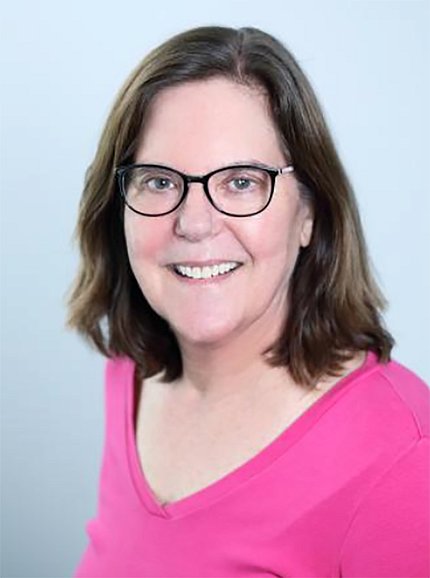NINDS’s Mamounas Retires After 22 Years of Service

After 22 years of federal service at NIH Dr. Laura Mamounas, a program director in the Neurogenetics Cluster of the Division of Neuroscience at the National Institute of Neurological Disorders and Stroke (NINDS), retired from full-time work on Oct. 31.
“I have immensely enjoyed my career at NIH—helping students and junior scientists navigate the NIH system to achieve grant funding and working to advance research progress in neurodevelopmental disorders (NDDs) and autism,” said Mamounas. “NINDS is an amazing place to work.”
Mamounas earned her undergraduate degree in biology from the University of California, Irvine, in 1979, and her Ph.D. in neuroscience from Stanford University in 1986. Upon completion of postdoctoral training in the department of neuroscience at Johns Hopkins University (JHU) School of Medicine, she continued at JHU as a research associate for several years. From 1993 to 1995, she was a National Institute of Mental Health-funded research scientist at the Neuroscience Center at St. Elizabeth’s Hospital in Washington, D.C.
Prior to joining NINDS, Mamounas conducted basic research at the National Institute on Aging’s Gerontology Research Center located on the JHU School of Medicine campus and was a JHU faculty member in the division of neuropathology of the department of pathology. There, she directed an NIH-funded research program that investigated the role of neurotrophic factor mechanisms in brain plasticity during neurodevelopment and aging.
“Although I loved my research, I was frustrated with my career prospects and the near-total dependency on obtaining grant funding,” Mamounas explained. “One weekend, while revising a grant application (that was not funded), I happened to look at NIH job openings. NINDS had an opening for a program director that fell squarely within my interests and background. On a whim, I decided to apply. I wanted to have a broader impact on neuroscience research.”
In 2001, she joined NINDS as a program director in the Neurogenetics Cluster where she managed a portfolio of research grants and programs focused on childhood neurodevelopmental disorders (NDDs). Many NDDs involve rare genetic mutations that are often associated with intellectual disability, autism and epilepsy.
For more than 10 years, Mamounas also helped direct and manage the Undiagnosed Diseases Network (UDN)—a 10-year, $300 million NIH Common Fund program that recently transitioned to NINDS. And she played a significant role in NIH-supported clinical trials for NDDs including those designed to explore fragile X syndrome and tuberous sclerosis complex.
“It’s been very rewarding to work with the patient community and advocacy groups, as well as my NIH colleagues and other federal agencies, in our mutual goal to find a cure for these devastating disorders,” she said.
Throughout her career, Mamounas organized or co-developed more than 20 workshops or conferences, chaired or served on many NIH-wide and federal coordinating committees, and authored and co-authored a number of publications and journal articles. Over the years, her work garnered her numerous accolades and awards, and she was frequently invited to speak at national and international conferences and meetings.
In retirement, Mamounas plans to spend more time with her two grandsons, work on home renovation projects and travel. She also will work part-time as a contractor, starting this month, helping to manage the UDN.
